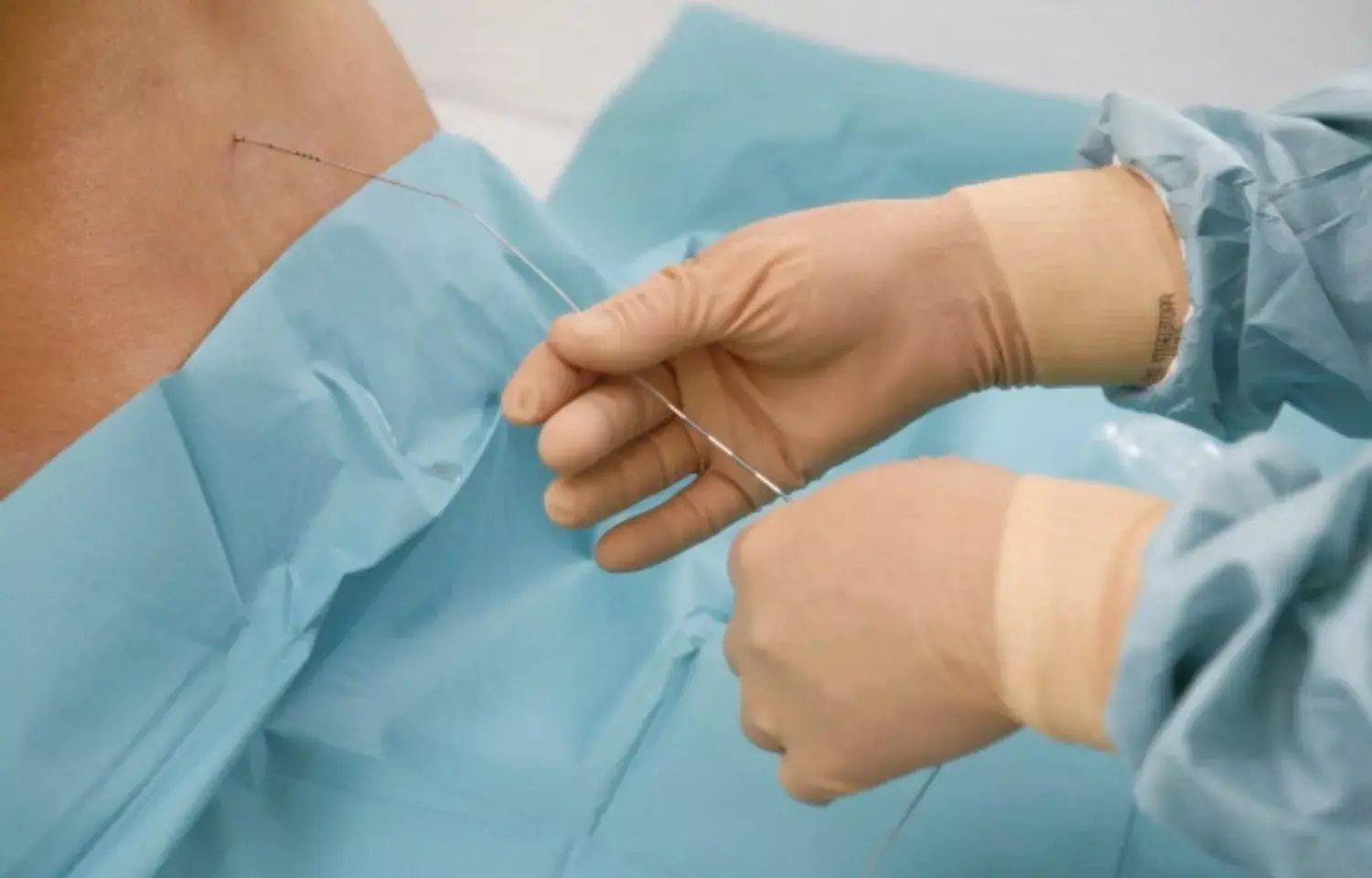- Home
- Medical news & Guidelines
- Anesthesiology
- Cardiology and CTVS
- Critical Care
- Dentistry
- Dermatology
- Diabetes and Endocrinology
- ENT
- Gastroenterology
- Medicine
- Nephrology
- Neurology
- Obstretics-Gynaecology
- Oncology
- Ophthalmology
- Orthopaedics
- Pediatrics-Neonatology
- Psychiatry
- Pulmonology
- Radiology
- Surgery
- Urology
- Laboratory Medicine
- Diet
- Nursing
- Paramedical
- Physiotherapy
- Health news
- Fact Check
- Bone Health Fact Check
- Brain Health Fact Check
- Cancer Related Fact Check
- Child Care Fact Check
- Dental and oral health fact check
- Diabetes and metabolic health fact check
- Diet and Nutrition Fact Check
- Eye and ENT Care Fact Check
- Fitness fact check
- Gut health fact check
- Heart health fact check
- Kidney health fact check
- Medical education fact check
- Men's health fact check
- Respiratory fact check
- Skin and hair care fact check
- Vaccine and Immunization fact check
- Women's health fact check
- AYUSH
- State News
- Andaman and Nicobar Islands
- Andhra Pradesh
- Arunachal Pradesh
- Assam
- Bihar
- Chandigarh
- Chattisgarh
- Dadra and Nagar Haveli
- Daman and Diu
- Delhi
- Goa
- Gujarat
- Haryana
- Himachal Pradesh
- Jammu & Kashmir
- Jharkhand
- Karnataka
- Kerala
- Ladakh
- Lakshadweep
- Madhya Pradesh
- Maharashtra
- Manipur
- Meghalaya
- Mizoram
- Nagaland
- Odisha
- Puducherry
- Punjab
- Rajasthan
- Sikkim
- Tamil Nadu
- Telangana
- Tripura
- Uttar Pradesh
- Uttrakhand
- West Bengal
- Medical Education
- Industry
LAL-QLB with IV analgesia as good as TEA under multimodal analgesia after open liver surgery

A recent study by Bin Gu found thoracic epidural analgesia (TEA) provides better pain control than ultrasound-guided anterior quadratus lumborum block at the lateral supra-arcuate ligament (LAL-QLB) with intravenous analgesia after open liver surgery. The findings of this study was published in Journal of the American College of Surgeon.
This study was a randomized, open-label trial that included 74 patients undergoing open liver surgery who were randomized (1:1) to the LAL-QLB or TEA group. The primary outcome was the numeric rating scale during coughing at 24 hours postoperatively with a non-inferiority limit of 1.
The key highlights of the study were:
The mean difference of numeric rating scale during coughing at 24 hours postoperatively was 0.32 (95% CI –0.03 to 0.68), showing non-inferiority.
The TEA group had better pain scores at 1 and 6 hours, and the early postoperative pain of the LAL-QLB group was within the clinically acceptable limit with no differences at other time points.
The LAL-QLB group received more opioids within 24 hours postoperatively. There were no differences in analgesia-related adverse reactions or rescue analgesia.
The study also found that postoperative coagulopathy was responsible with 19.4% of delayed epidural removal. TEA outperformed LAL-QLB in terms of ambulation and bowel recovery. There were no differences in hospital stay or 30-day postoperative complications.
The study found that LAL-QLB provided non-inferior analgesia at 24 hours postoperatively. However, considering coagulopathy and delayed epidural removal, TEA was found to be better than LAL-QLB for pain management after open liver surgery. Close coagulation test were necessary for epidural removal.
Source:
Gu, B., Zhou, H., Lian, Y., Zhou, Y., He, S., Xie, K., & Jiang, H. (2022). Ultrasound-Guided Anterior Quadratus Lumborum Block at Lateral Supra-Arcuate Ligament vs Thoracic Epidural Analgesia after Open Liver Surgery: A Randomized, Controlled, Noninferiority Trial. In Journal of the American College of Surgeons. Ovid Technologies (Wolters Kluwer Health). https://doi.org/10.1097/xcs.0000000000000354
Neuroscience Masters graduate
Jacinthlyn Sylvia, a Neuroscience Master's graduate from Chennai has worked extensively in deciphering the neurobiology of cognition and motor control in aging. She also has spread-out exposure to Neurosurgery from her Bachelor’s. She is currently involved in active Neuro-Oncology research. She is an upcoming neuroscientist with a fiery passion for writing. Her news cover at Medical Dialogues feature recent discoveries and updates from the healthcare and biomedical research fields. She can be reached at editorial@medicaldialogues.in
Dr Kamal Kant Kohli-MBBS, DTCD- a chest specialist with more than 30 years of practice and a flair for writing clinical articles, Dr Kamal Kant Kohli joined Medical Dialogues as a Chief Editor of Medical News. Besides writing articles, as an editor, he proofreads and verifies all the medical content published on Medical Dialogues including those coming from journals, studies,medical conferences,guidelines etc. Email: drkohli@medicaldialogues.in. Contact no. 011-43720751


